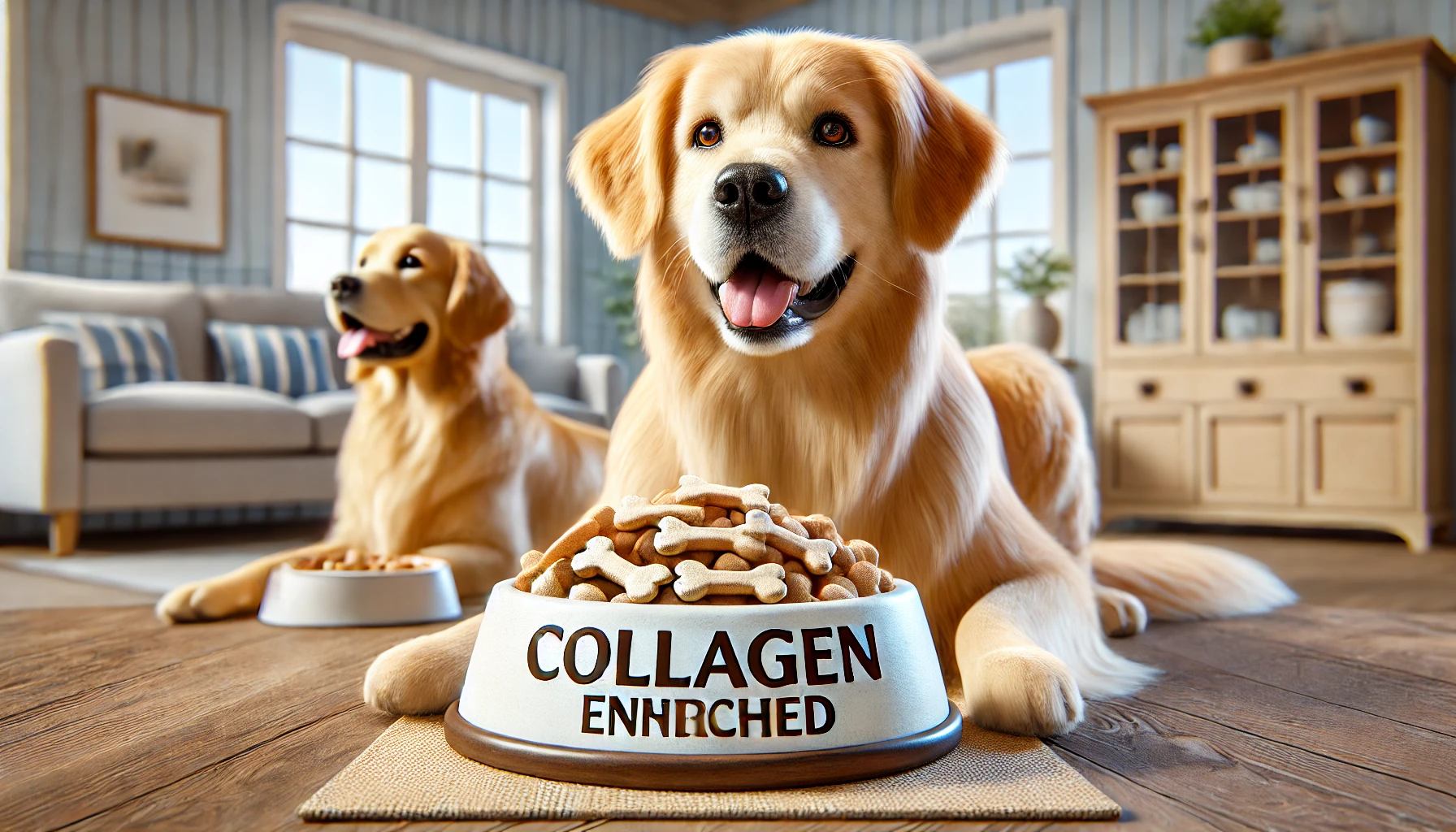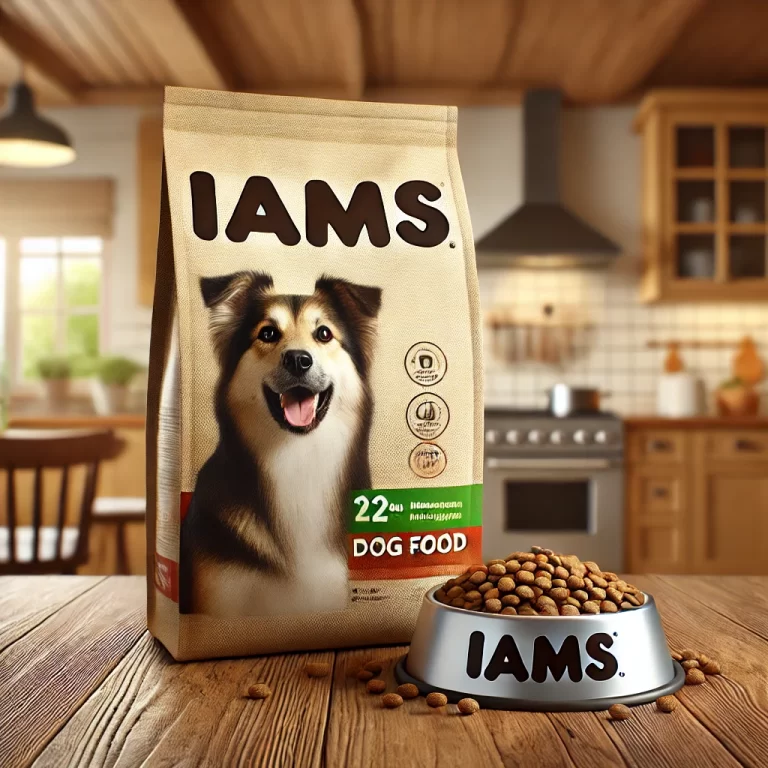Is Collagen Good for Dogs? Benefits, Risks, and Best Sources
Collagen has become a popular supplement in the world of human health, but many pet owners wonder, is collagen good for dogs? This natural protein plays a crucial role in joint health, skin elasticity, and overall well-being. In this article, we will explore the benefits of collagen for dogs, potential risks, how to incorporate it into their diet, and the best collagen sources for canine health.
What is Collagen?
Collagen is the most abundant protein in the body, making up a significant portion of skin, joints, ligaments, tendons, and bones. As dogs age, their natural collagen production declines, leading to joint stiffness, reduced mobility, and other signs of aging. Supplementing with collagen can help maintain their overall health and vitality.
Benefits of Collagen for Dogs
1. Improves Joint and Bone Health
One of the primary benefits of collagen is its ability to support joint and bone health. Dogs, especially older ones or breeds prone to joint problems like Labradors, German Shepherds, and Golden Retrievers, can benefit from collagen supplementation. It helps maintain cartilage and reduces inflammation, promoting mobility and flexibility.
2. Supports Healthy Skin and Coat
Collagen contributes to the elasticity and hydration of a dog’s skin. If your dog suffers from dry, flaky skin or a dull coat, collagen supplementation can help restore moisture and shine, reducing issues like excessive shedding or skin irritation.
3. Aids in Digestive Health
Collagen contains amino acids like glycine, which can strengthen the gut lining. This is particularly helpful for dogs suffering from leaky gut syndrome or inflammatory bowel disease (IBD). A healthy gut lining prevents toxins from entering the bloodstream and promotes better digestion.
4. Enhances Muscle and Ligament Strength
Active dogs, such as working breeds or those that participate in agility training, require strong muscles and ligaments. Collagen provides essential nutrients that help repair muscle tissues and support ligament health, reducing the risk of injuries.
5. Promotes Dental Health
Collagen also contributes to stronger teeth and gums. Chewing on natural collagen sources, like beef trachea or tendons, can help keep your dog’s teeth clean and free from tartar buildup.
Best Sources of Collagen for Dogs
1. Bone Broth
Bone broth is a natural, nutritious source of collagen. Made by slow-cooking animal bones, it provides essential minerals and amino acids that support joint and digestive health.
2. Chicken Feet and Beef Trachea
These natural treats are packed with collagen and can be an excellent addition to your dog’s diet. Chicken feet are rich in glucosamine and chondroitin, which further support joint health.
3. Collagen Supplements
There are various dog-friendly collagen powder supplements available that can be added to food. Look for high-quality, hydrolyzed collagen to ensure easy absorption.
4. Eggshell Membrane
The thin layer inside eggshells contains collagen and other beneficial compounds that support joint health. Some pet owners grind eggshell membranes into their dog’s food.
5. Fish Skin
Fish skin is another excellent natural source of collagen. It is rich in omega-3 fatty acids, which provide anti-inflammatory benefits along with collagen support.
How to Safely Introduce Collagen into Your Dog’s Diet
When adding collagen to your dog’s diet, start with small amounts to ensure they tolerate it well. Here are some tips:
- Mix it into their food – If using powder or bone broth, mix it with their regular meals.
- Provide chew treats – Chicken feet, beef trachea, and fish skin are great chew options.
- Monitor their response – Watch for any signs of digestive upset, such as diarrhea or bloating.
Potential Risks and Side Effects
While collagen is generally safe for dogs, there are a few things to keep in mind:
- Allergies: Some dogs may be allergic to specific protein sources, such as chicken or beef.
- Excessive intake: Too much collagen can lead to digestive issues, so moderation is key.
- Low-quality products: Always choose high-quality, dog-safe collagen supplements free from additives and artificial ingredients.
Frequently Asked Questions (FAQ)
1. Can puppies have collagen?
Yes! Puppies can benefit from collagen for healthy growth, but they usually get enough from a balanced diet. Always consult your vet before adding supplements.
2. How much collagen should I give my dog?
Dosage depends on your dog’s size and weight. Generally, 1-2 teaspoons of collagen powder per day is safe for most dogs. Always follow the product’s recommendations or consult a veterinarian.
3. How long does it take to see benefits?
Most dogs show improvement in joint mobility, skin, and coat health within 4-6 weeks of regular collagen supplementation.
4. Is collagen the same as glucosamine?
No, but they work well together! Glucosamine supports joint lubrication, while collagen helps maintain cartilage structure.
5. Can I give my dog human collagen supplements?
It’s best to choose pet-specific collagen to avoid additives and artificial ingredients that may be harmful to dogs.
Conclusion: Should You Give Collagen to Your Dog?
So, is collagen good for dogs? The answer is yes! Collagen provides numerous benefits, including joint support, improved skin and coat, better digestion, stronger muscles, and dental health. By choosing high-quality collagen sources and introducing it gradually, you can support your dog’s overall well-being and longevity.
If you’re unsure whether collagen is right for your dog, consult your veterinarian to determine the best approach based on their specific health needs. With the right care, your furry friend can enjoy a healthier, more active life!







